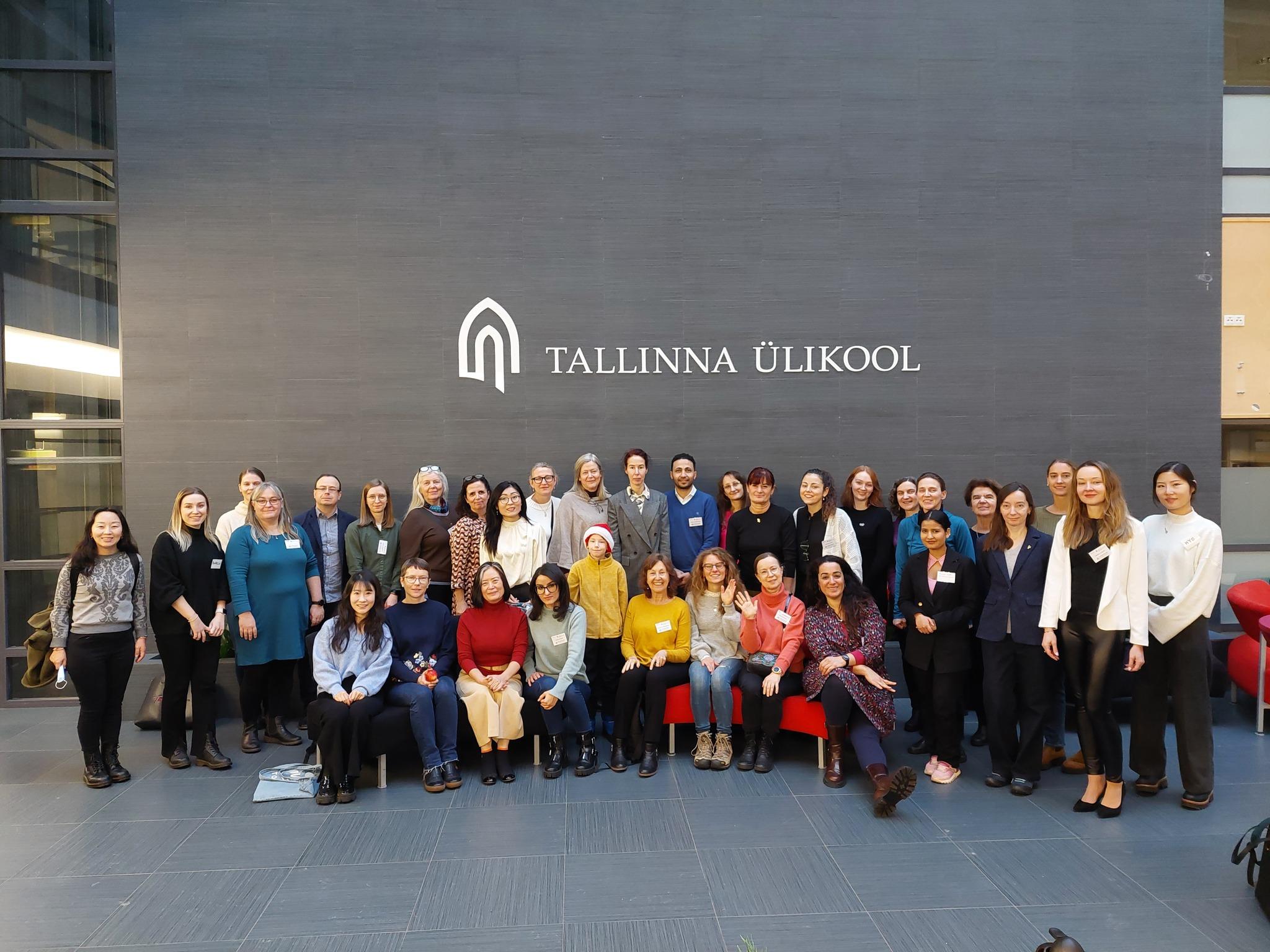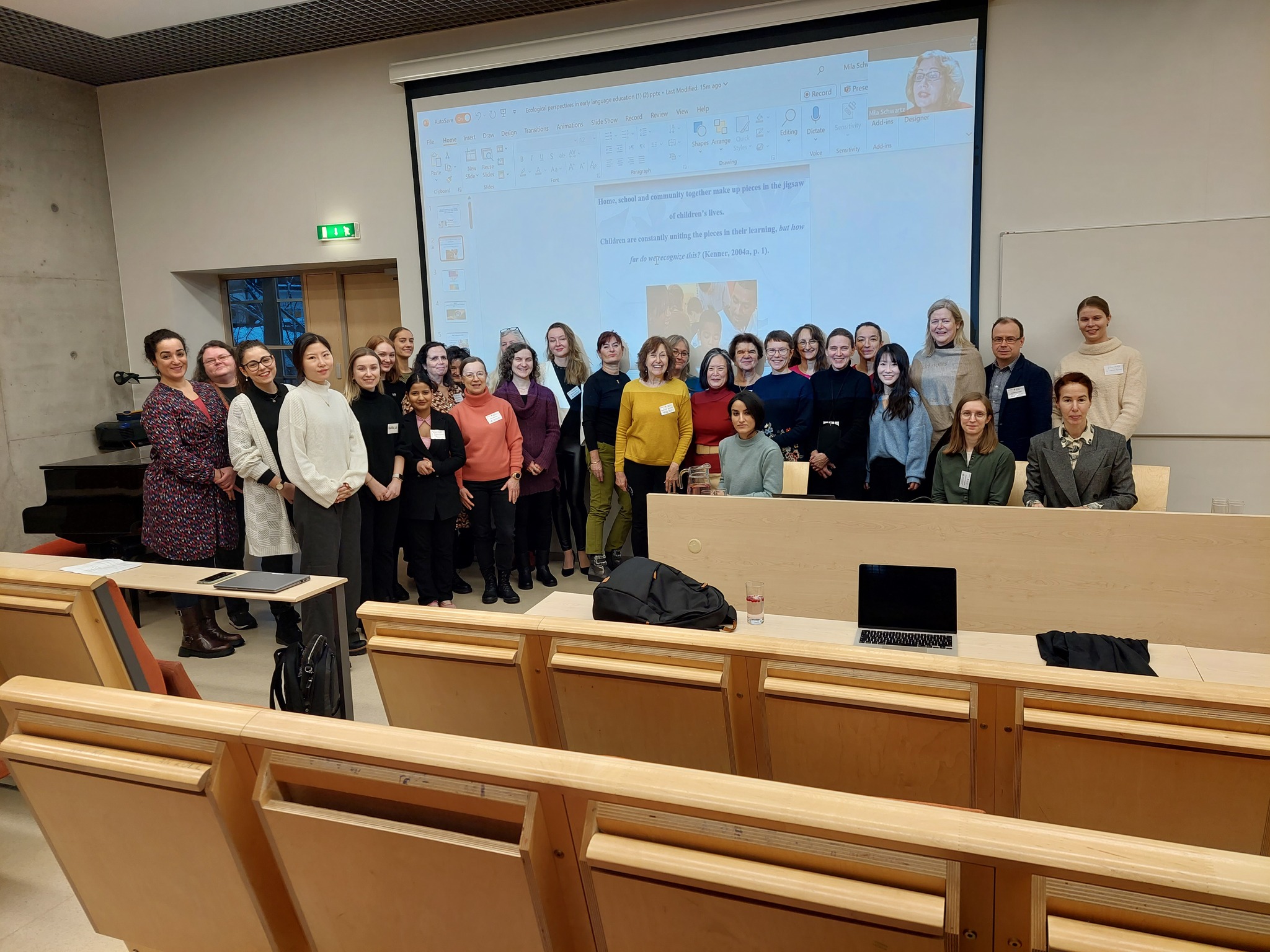HOLM2023: Day Three
The Conference on Research on Social and Affective Factors in Home Language Maintenance and Development (HOLM2023) concluded on Saturday, December 16th, 2023.

Participants continued with Day 3 of the HOLM2023 conference, featuring a keynote by Professor Mila Schwartz from Oranim Academic College of Education, Israel. Her presentation, titled ‘Ecological Perspectives in Early Language Education: Parent, Teacher, Peers, and Child Agency in Interaction’, delved into the crucial question of how young children, as agents, maintain and enrich their home languages while also learning the socially dominant language. Professor Schwartz underscored the crucial role of a supportive classroom and home-school collaboration in maintaining a child's home language. She stressed the significance of these factors and advocated for an ecological approach to early language learning. This approach considers interactions within the family, educational institution, and community as integral to a child's language development. Professor Schwartz presented a Model of the Ecology of Child’s Early Language Learning, examining interactions in socio-cultural and linguistic contexts using key environmental elements.
The day also featured four presentations, each exploring specific themes. One delved into the impact of geopolitical events, like the Ukraine war, on Russian-speaking immigrant families' language policies. Ukrainian immigrants in Croatia also adapted their language practices to a new linguistic environment. Another presentation focused on how generational dynamics intersect with language policy maintenance among multilingual emerging adults in immigrant families, highlighting the complex interplay of identity, cultural preservation, and practical necessity. In a Swedish context, mother tongue instruction served as a nexus for identity, bridging heritage and host cultures. These diverse scenarios illuminated the intricate relationship between geopolitical events, generational shifts, and the complex nature of language policies in immigrant communities.
The day concluded with a PhD workshop, a special session for PhD candidates. Young scholars delved into central research questions, ideas, theoretical frameworks, and their initial findings. A unique aspect of these talks was the emphasis on addressing ethical and methodological challenges, offering a well-rounded perspective on the research process. Mentorship extended beyond presentation feedback, providing opportunities for career advice and discussions on various topics of interest to participants. All mentors actively participated in the panel discussion, answering questions from the emerging scholars and providing valuable perspectives on the multifaceted aspects of academic careers.

HOLM2023 was a distinctive combination of academic exchange, mentorship, and networking opportunities, creating a vibrant space for sharing ideas and fostering collaborative relationships among researchers in the field of home language maintenance and development.
For additional information, please feel free to contact Professor Anastassia Zabrodskaja, the chair of the HOLM2023 conference, at anastassia.zabrodskaja@tlu.ee.